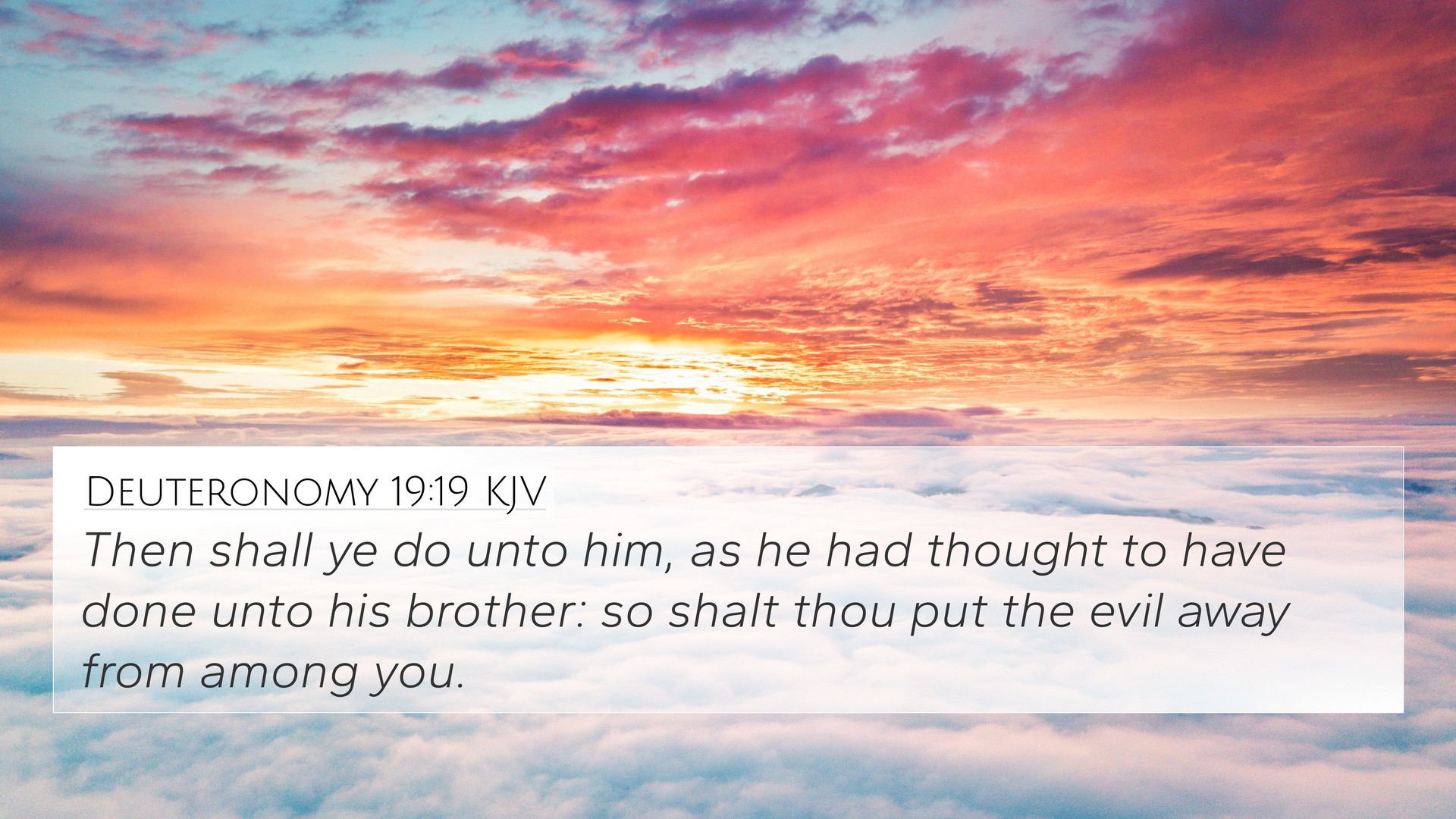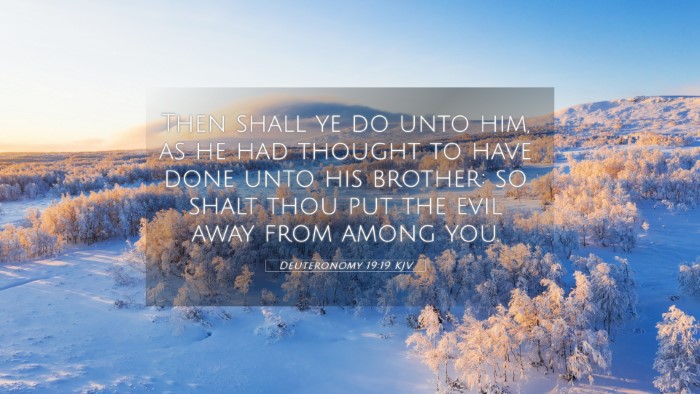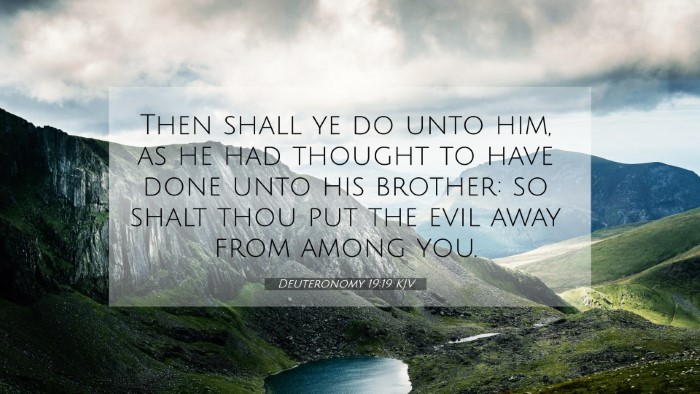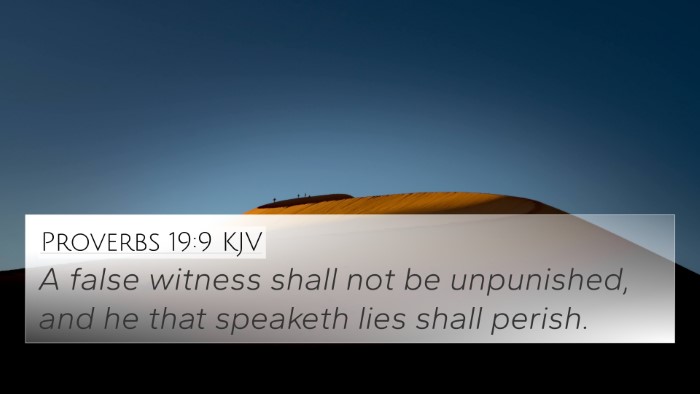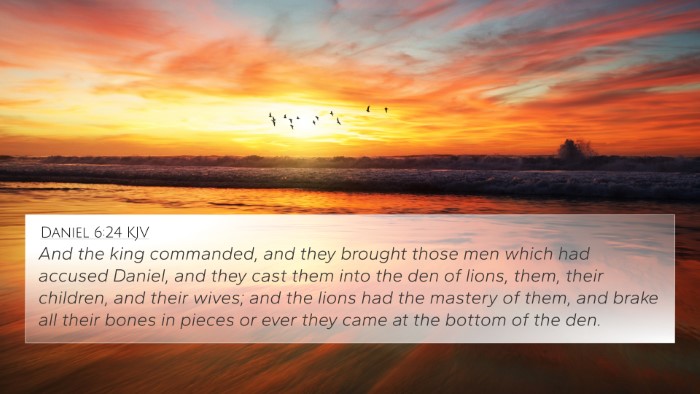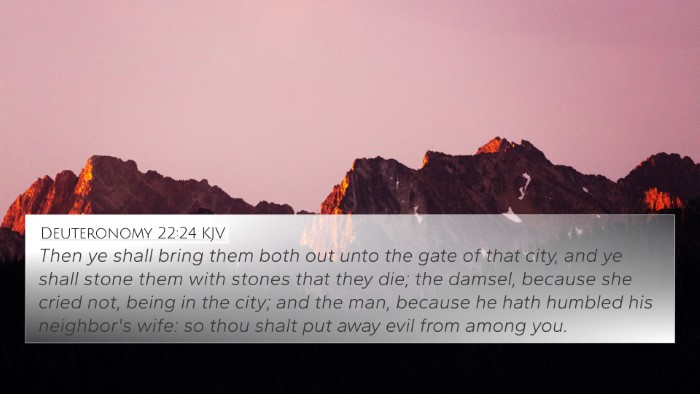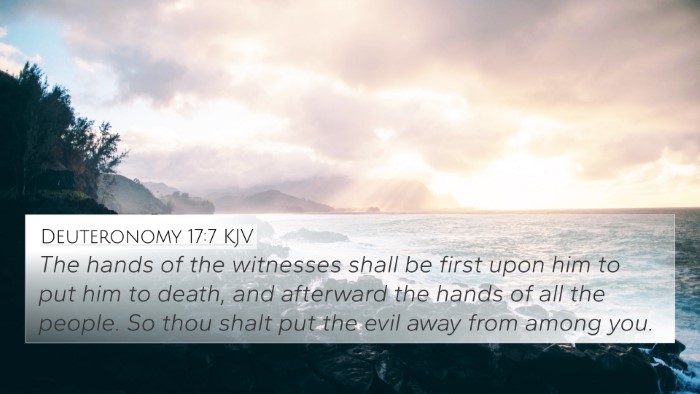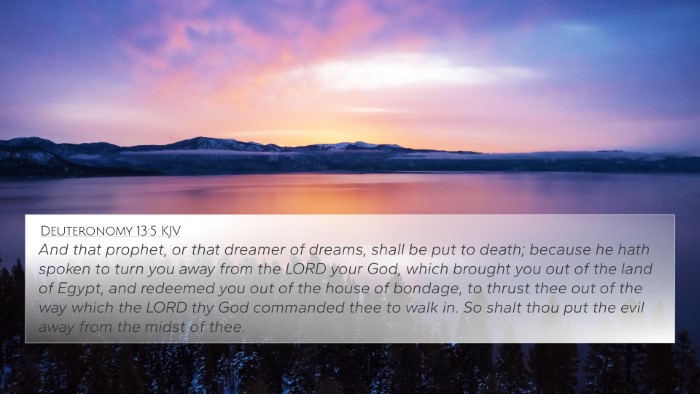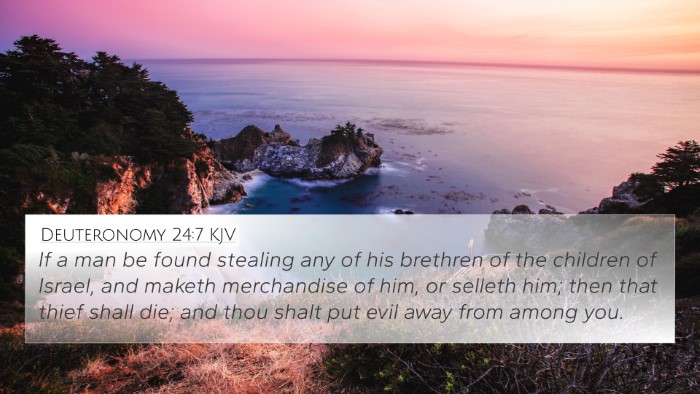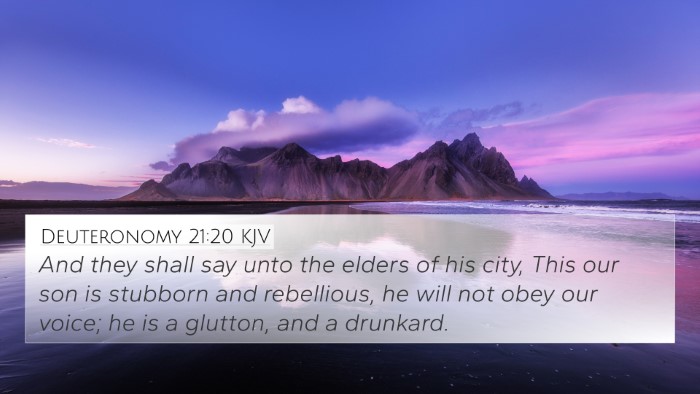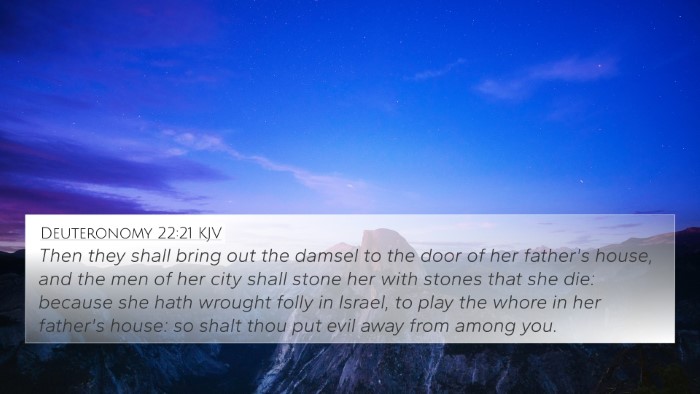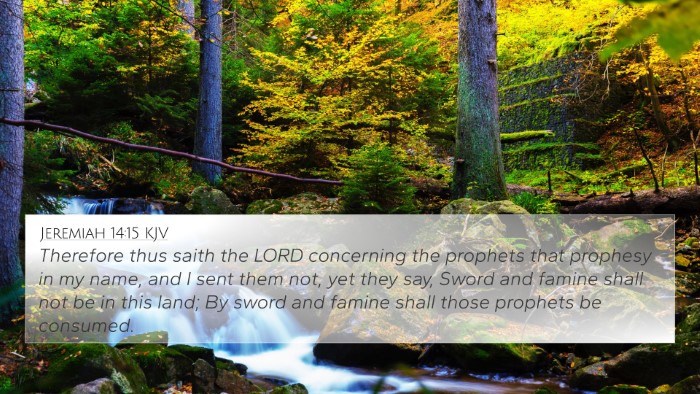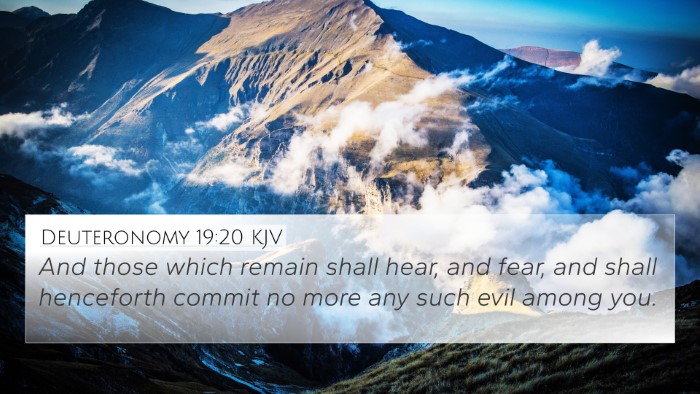Understanding Deuteronomy 19:19
Verse: Deuteronomy 19:19 - "Then you shall do to him as he intended to do to his brother, so you shall purge the evil from your midst."
Overview
This verse deals with the principle of retributive justice, providing an essential foundation for understanding justice in the biblical context. It emphasizes the necessity of addressing wrongdoing to maintain social order and righteousness.
Commentary Insights
Matthew Henry
Henry explains that this law establishes the principle that the punishment should fit the crime. It acts as a deterrent against evil deeds and invites accountability. The emphasis on purging evil reflects the need for the community to be vigilant against injustice.
Albert Barnes
Barnes highlights the moral dimensions underlying this verse, noting its context within the larger framework of justice and societal responsibility. The communal aspect of justice is significant, where the community must ensure that wrongdoing does not go unpunished to maintain collective integrity.
Adam Clarke
Clarke addresses the practical implications of this verse, suggesting that it points toward a system that seeks to deter future crimes through a just response. It embodies the spirit of equity, wherein the punishment serves to restore order rather than simply to vindictively retaliate.
Key Themes and Connections
Deuteronomy 19:19 presents several themes of justice that resonate throughout the Bible. These themes are critical to understanding not only Old Testament laws but also their application in New Testament teachings.
- Retributive Justice: The concept of "an eye for an eye" can be observed in Exodus 21:24.
- Purging Evil: The need to eliminate evil from the community connects with 1 Corinthians 5:13, where Paul instructs the church to remove the wicked person from among them.
- Accountability: The principle of mutual accountability echoes in Galatians 6:1, urging believers to restore those caught in sin.
- The Role of the Community: Numbers 35:30 emphasizes the importance of eyewitnesses in judgment, similar to the communal accountability seen in Deuteronomy 19:15.
- God's Justice: Psalm 37:28 affirms that the Lord loves justice and will not forsake His saints.
- Forgiveness vs. Retribution: Matthew 6:14-15 contrasts human judgments with divine forgiveness.
- Jesus on Judgment: In John 7:24, Jesus warns against judging by mere appearances, promoting righteous judgment instead.
- Evil and its Consequences: Proverbs 11:21 assures that the wicked will not go unpunished, reinforcing the imperative given in Deuteronomy 19:19.
- Morality and Law: Romans 13:4 highlights the role of the governing authorities in executing justice as God’s servants.
- Restoration: 2 Corinthians 5:10 speaks of accountability before Christ, linking to the theme of retributive justice.
Cross-Referencing Insights
The cross-referencing Bible study not only enriches the understanding of Deuteronomy 19:19 but also emphasizes the interconnectedness of biblical texts. Below are suggestions for effectively linking scriptures:
- Utilize a Bible Concordance: This tool will help identify verses that share themes or concepts with Deuteronomy 19:19.
- Employ the Bible Cross-Reference Guide: This enables a thematic approach to linking biblical texts, facilitating deeper analysis.
- Learn Cross-Referencing Methods: Familiarize yourself with methods that align verses with similar messages or contexts.
- Engage in Comparative Studies: Explore similarities between related scripture passages, enhancing interpretative depth.
Practical Application and Reflection
Understanding Deuteronomy 19:19 in combination with its cross-references urges believers to reflect on justice's role in their lives and communities. Every individual bears the responsibility to uphold righteousness and actively participate in purging evil.
This scripture serves as a reminder that while we strive for justice, we must also ground our actions in love and mercy, as seen through Christ’s teachings in the New Testament.
Conclusion
Deuteronomy 19:19 encapsulates a principle of equitable justice that extends beyond the ancient context to inform modern ethical discussions. By cross-referencing related scriptures, one can appreciate the Bible's holistic message on justice, morality, and community responsibility.
Keywords for Further Study
- Bible verse cross-references
- Connections between Bible verses
- Comparative Bible verse analysis
- Bible verses that relate to each other
- Cross-referencing Biblical texts
- Inter-Biblical dialogue
